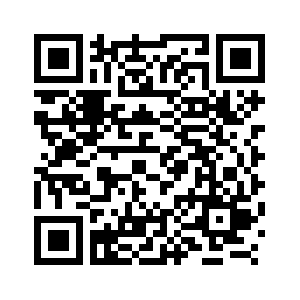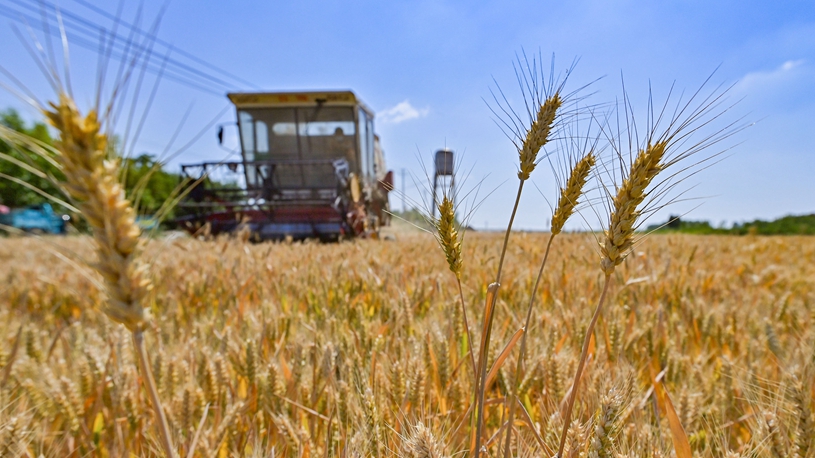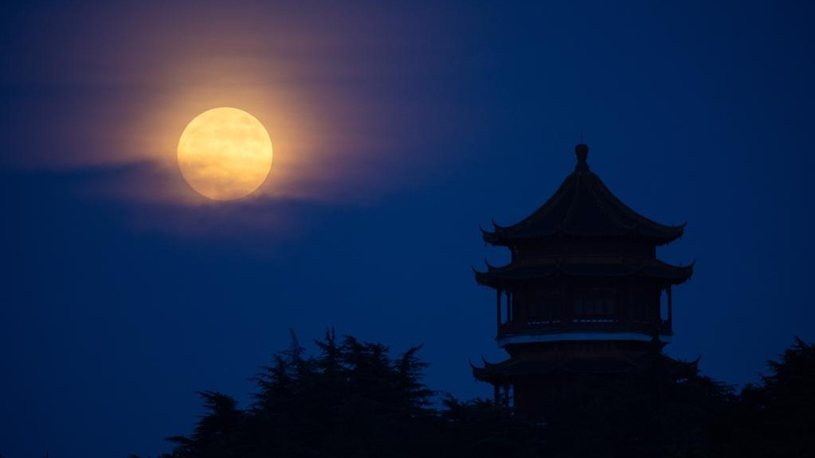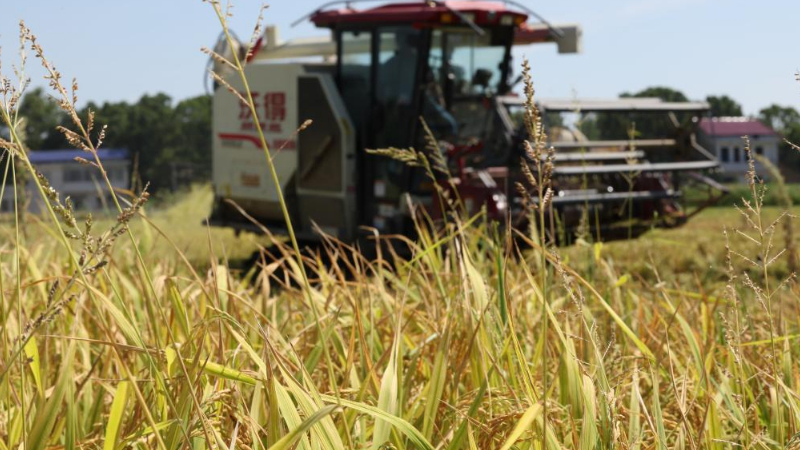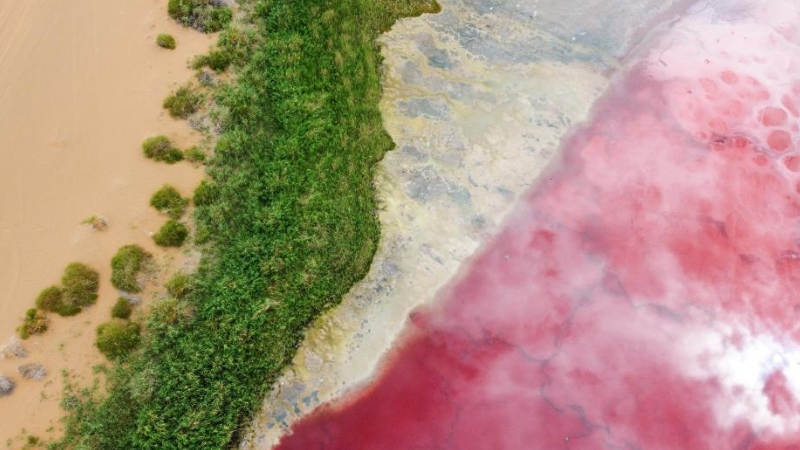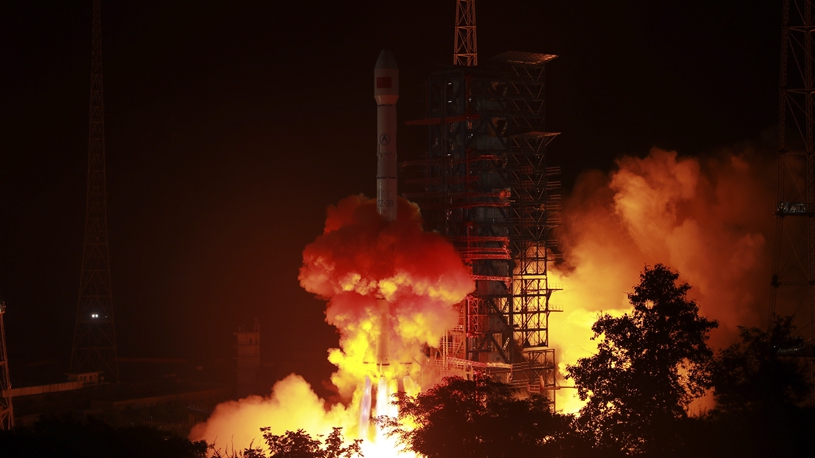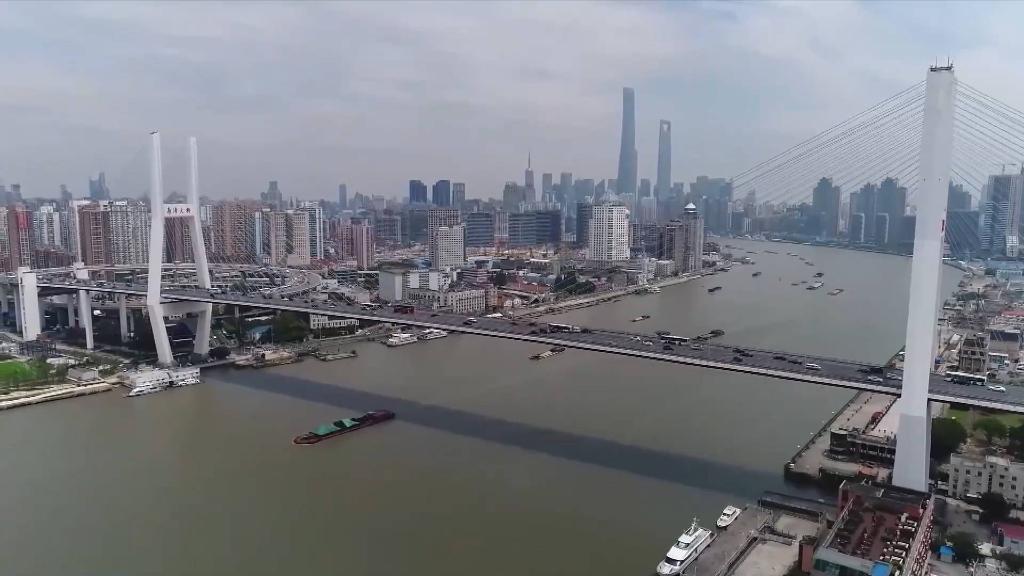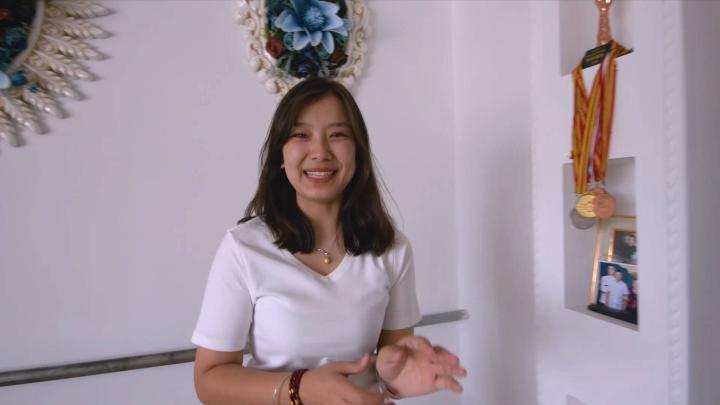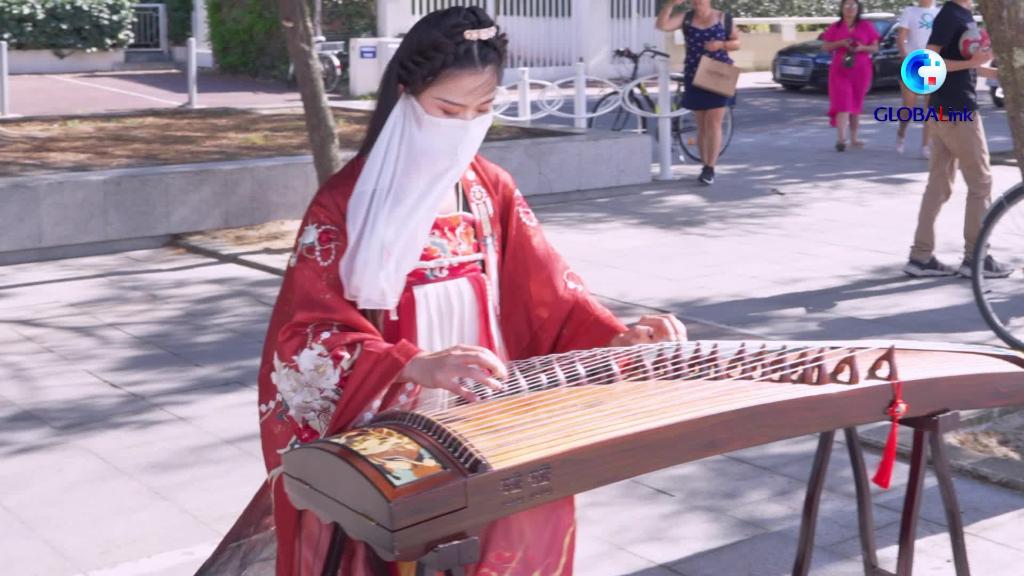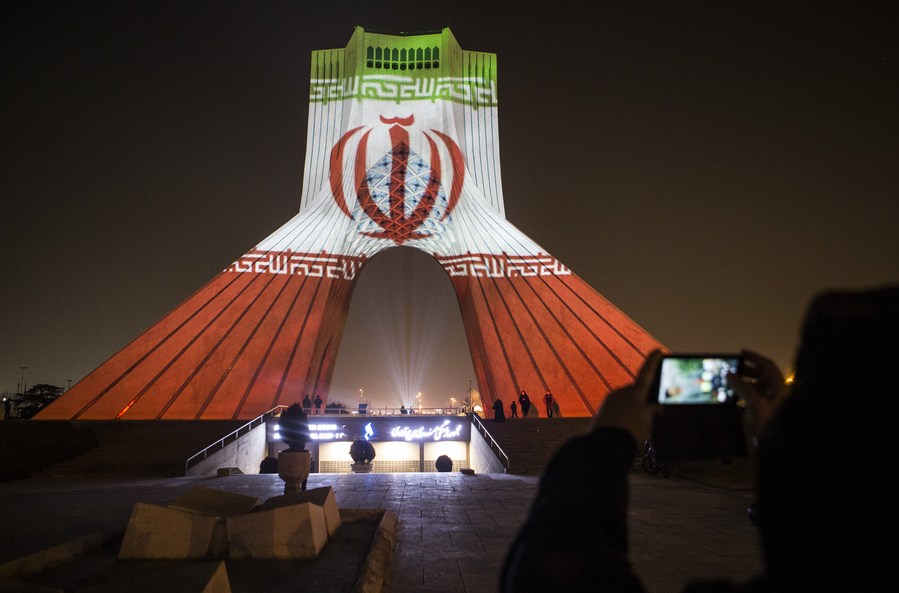
The Azadi Tower is illuminated in Tehran, Iran, on Jan 1, 2021, during a ceremony on the occasion of first anniversary of death of Qassem Soleimani, former commander of the Quds Force of Iran's Islamic Revolution Guards Corps (IRGC). (Photo by Ahmad Halabisaz/Xinhua)
Over the past 11 months, Iranian President Ebrahim Raisi's good-neighborliness "dynamic diplomacy" and "Look to the East" policy have minimized impacts of intensified U.S.-led Western sanctions.
TEHRAN, July 17 (Xinhua) -- U.S. President Joe Biden's first Middle East tour meant to rally support to counter what he called "Iranian threats" is most likely to see a watered-down achievement, given Iran's sustained efforts to improve relations with neighbors and other countries in the region, analysts said.
A handful of Iranian media outlets recently reviewed the track record of Iran's foreign policy under the current administration that has put regional countries on top of its priorities, finding some fruitful outcomes in fixing Iran's strained ties with regional powers such as Saudi Arabia.
WEST NO LONGER PRIORITY
Since the first day of his administration, Iranian President Ebrahim Raisi has been focusing on developing ties with, firstly, neighbors and regional countries and, secondly, Asian and other countries.
"As widely confirmed by experts, Iran's neighbors offer considerable capacities for exchanges in the economy, energy, transit and trade sectors," the semi-official Tasnim News Agency wrote in a recent analysis on Raisi's approach.
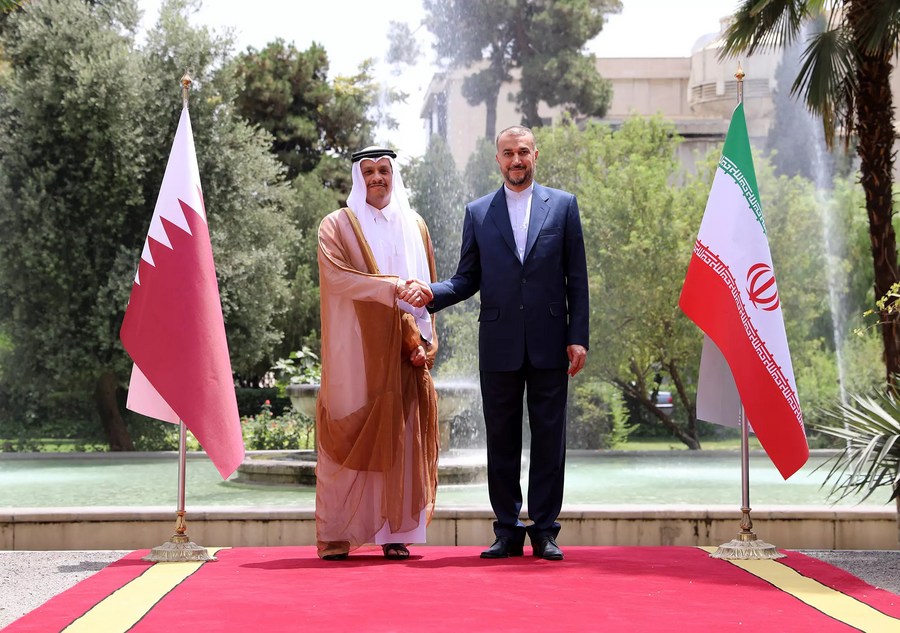
Iranian Foreign Minister Hossein Amir-Abdollahian (R) welcomes his visiting Qatari counterpart Mohammed bin Abdulrahman Al Thani in Tehran, Iran, July 6, 2022. (Iranian Foreign Ministry/Handout via Xinhua)
The most important strategy Raisi has pursued is to go beyond the "unwritten" convention of limiting Iran's foreign policy to the interactions with the West, Khabaronline news website wrote in an opinion piece on the 11-month performance of the Raisi administration.
Instead, "he and his team have constantly taken major steps toward opening new chapters in bilateral ties with neighbors and regional states and clearing up the misunderstandings," the website wrote.
The Raisi administration managed to prepare all the ground for Iran to get full membership of the Shanghai Cooperation Organisation, in a bid to enjoy the abundant opportunities the transnational group can offer, it added.
NEUTRALIZATION OF SANCTIONS
Tasnim said the Raisi administration has made "diverse achievements" in diplomacy, such as a 400-percent increase in transactions with Tajikistan, expansion of strategic relations with Russia, and expressing willingness for cooperation with BRICS and other regional and international organizations.
Raisi has sought to minimize the impacts of intensified U.S.-led Western sanctions on his country with such a "dynamic diplomacy" and by adopting a "Look to the East" policy, among other efforts, semi-official Fars News Agency said in a recent article.

Saudi Crown Prince Mohammed bin Salman Al Saud (R) meets with U.S. President Joe Biden at the Al-Salam Palace in Jeddah, Saudi Arabia, on July 15, 2022. (Saudi Press Agency/Handout via Xinhua)
Iran has been a target of U.S. coercive measures over the past four decades, especially since May 2018 when then U.S. President Donald Trump unilaterally pulled Washington out of a 2015 nuclear deal and intensified sanctions on Iran.
However, the rise in vaccine imports and oil sales, Iran's more active and influential role in the region, and its increased interactions with the rest of the world are all evidence of the positive outcomes of Tehran's approach against such sanctions, the Fars article noted.
In line with its policy of boosting ties with neighbors and regional countries, the Raisi administration revived Iran's relations with the Economic Cooperation Organization (ECO), an Asian political and economic intergovernmental organization, and had an active presence in the 15th ECO Summit hosted by Turkmenistan last November, where Iran, Azerbaijan and Turkmenistan signed a gas swap deal that helped resolve Iran's gas dispute with Azerbaijan, Khabaronline said.
Abbas Moqtadaei, vice chairman of the National Security and Foreign Policy Commission of the Iranian parliament, told official news agency IRNA that the Raisi administration's good-neighborliness approach will open up new cooperation potential in economy, trade and politics.
EFFORTS BEARING FRUIT
Over the past years, Iran's strained ties with some regional countries allowed the United States sufficient room to pressure Iran through sanctions and isolation policy, analysts said. But under Raisi, Tehran managed to revive or, at least, began to mend some of its strained relations, Khabaronline wrote.
"One of the measures taken by the Raisi administration was to start a new round of Iraq-brokered normalization talks with Saudi Arabia," as Tehran-Riyadh tensions in recent years are among the most challenging problems to solve in the region, according to Khabaronline.
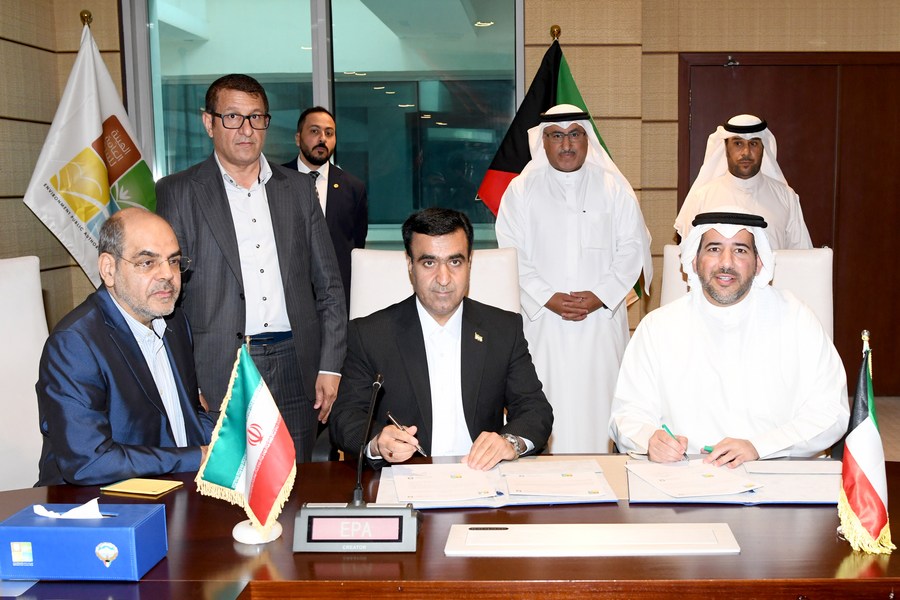
Director General of Kuwait's Environment Public Authority Sheikh Abdullah Al-Humoud Al-Sabah (1st R, Front) and Ali Salajegheh (2nd R, Front), visiting Iranian vice-president and head of the Department of Environment, attend a signing ceremony in Al-Asimah Governorate, Kuwait, on July 5, 2022. (Photo by Ghazy/Xinhua)
Iran and other Arab states have also seen frequent mutual visits over the last few months, Tehran Times said, adding that Raisi has travelled to many countries, including Oman and Qatar, in a bid to advance the country's foreign policy goals.
Official voices from countries with strained relations with Iran, including those that came during Biden's first trip to the Middle East, have shown that the Raisi administration's diplomatic efforts are gradually coming to fruition.
Anwar Gargash, a senior diplomatic advisor to the United Arab Emirates (UAE) president, told reporters on Friday that the UAE is working to send an ambassador to Tehran in thawing relations.
"We are open to cooperation, but not cooperation targeting any other country in the region and I specifically mention Iran," he said. ■
